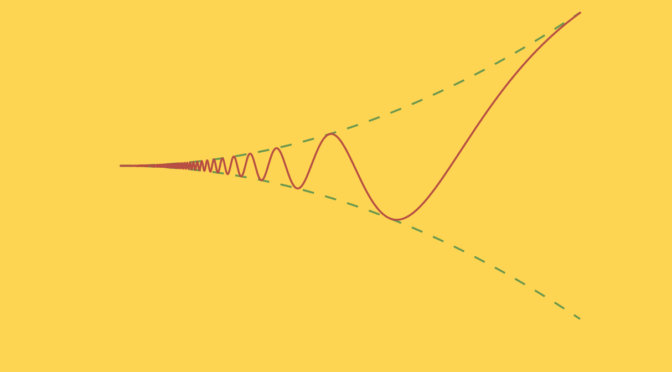Consider the real function defined on \(\mathbb R\)\[
f(x)=\begin{cases}
0 &\text{for } x = 0\\
x^2 \sin \frac{1}{x^2} &\text{for } x \neq 0
\end{cases}\]
\(f\) is continuous and differentiable on \(\mathbb R\setminus \{0\}\). For \(x \in \mathbb R\) we have \(\vert f(x) \vert \le x^2\), which implies that \(f\) is continuous at \(0\). Also \[
\left\vert \frac{f(x)-f(0)}{x} \right\vert = \left\vert x \sin \frac{1}{x^2} \right\vert \le \vert x \vert\] proving that \(f\) is differentiable at zero with \(f^\prime(0) = 0\). The derivative of \(f\) for \(x \neq 0\) is \[
f^\prime(x) = \underbrace{2x \sin \frac{1}{x^2}}_{=g(x)}-\underbrace{\frac{2}{x} \cos \frac{1}{x^2}}_{=h(x)}\] On the interval \((-1,1)\), \(g(x)\) is bounded by \(2\). However, for \(a_k=\frac{1}{\sqrt{k \pi}}\) with \(k \in \mathbb N\) we have \(h(a_k)=2 \sqrt{k \pi} (-1)^k\) which is unbounded while \(\lim\limits_{k \to \infty} a_k = 0\). Therefore \(f^\prime\) is unbounded in all neighborhood of the origin.

